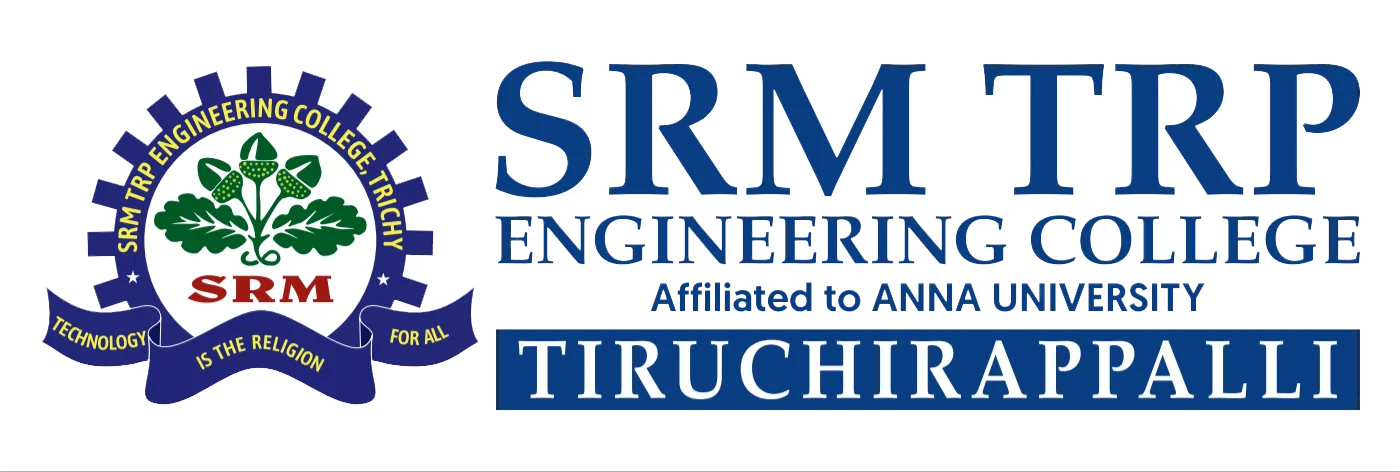Please sign in first
Not a member?

- Home
- About
- Academics
- Research
- Placement
- Admissions
- International Relations
- LIFE @ SRM TRP EC
About The Department
Department of Artificial Intelligence and Data science (AI & DS) started in the year 2022 to meet the requirements of the Emerging Technology. The department has well equipped computing laboratories, a rich repository of software covering, and a wide spectrum of applications. The strength of the department is the well qualified and experienced faculty members who aim at delivering top class education to improve and enhance the knowledge of the students. The department has a strong commitment for developing competent programmers, both class room sessions and hands on sessions. It has good laboratory facilities with latest updated software versions. The department conducts periodic workshops, seminars, and symposiums to help students and the research communities to unite in a common place and thereby strengthen the industry institute initiatives.
Vision
To be recognized as Centre of Excellence for innovation and research in Artificial Intelligence and Data science through the futuristic technologies by developing technocrats with ethical values to serve the society at global level.
MISSION
M1: To develop quality and technically competent computer professionals through excellence in academics.
M2: To encouraging the faculty and students towards research and development with advanced tools and technologies.
M3: To Enhance industry institute interaction to build a strong technical expertise among the students
M4: To inculcate leadership skills with ethical behaviours and social consciousness within the students
M5: To nurture professional empowerment among students through continuous learning
PROGRAM OFFERED
B.tech - Artificial Intelligence and Data science (AI & DS)
PROGRAM EDUCATIONAL OBJECTIVES (PEOs)
Graduates can
1.Utilize their proficiencies in the fundamental knowledge of basic sciences, Mathematics,Artificial Intelligence, data science and statistics to build systems that require management and analysis of large volumes of data.
2.Advance their technical skills to pursue pioneering research in the field of AI and DataScience and create disruptive and sustainable solutions for the welfare of ecosystems.
3.Think logically, pursue lifelong learning and collaborate with an ethical attitude in amultidisciplinary team.
4.Design and model AI based solutions to critical problem domains in the real world.
5.Exhibit innovative thoughts and creative ideas for effective contribution towards economybuilding.
II.PROGRAM OUTCOMES (POs)
PO Graduate Attribute
1.Engineering knowledge: Apply the knowledge of mathematics, science, engineering fundamentals, and an engineering specialization to the solution of complex engineering problems.
2.Problem analysis: Identify, formulate, review research literature, and analyze complex engineering problems reaching substantiated conclusions using first principles of mathematics, natural sciences, and engineering sciences.
3.Design/development of solutions: Design solutions for complex engineering problems and design system components or processes that meet the specified needs with appropriate consideration for the public health and safety, and the cultural, societal, and environmental considerations.
4.Conduct investigations of complex problems: Use research-based knowledge and research methods including design of experiments, analysis and interpretation of data, and synthesis of the information to provide valid conclusions.
5.Modern tool usage: Create, select, and apply appropriate techniques, resources, and modern engineering and IT tools including prediction and modelling to complex engineering activities with an understanding of the limitations.
6.The engineer and society: Apply reasoning informed by the contextual knowledge to assess societal, health, safety, legal and cultural issues and the consequent responsibilities relevant to the professional engineering practice.
7.Environment and sustainability: Understand the impact of the professional engineering solutions in societal and environmental contexts, and demonstrate the knowledge of, and need for sustainable development.
8.Ethics: Apply ethical principles and commit to professional ethics and responsibilities and norms of the engineering practice.
9.Individual and team work: Function effectively as an individual, and as a member or leader in diverse teams, and in multidisciplinary settings.
10.Communication: Communicate effectively on complex engineering activities with the engineering community and with society at large, such as, being able to comprehend and write effective reports and design documentation, make effective presentations, and give and receive clear instructions.
11.Project management and finance:, Demonstrate knowledge and understanding of the engineering and management principles and apply these to one’s own work, as a member and leader in a team, to manage projects and in multidisciplinary environments.
12.Life-long learning: Recognize the need for, and have the preparation and ability to engage in independent and life-long learning in the broadest context of technological change.
III. PROGRAM SPECIFIC OUTCOMES (PSOs)
Graduates should be able to:
1.Evolve AI based efficient domain specific processes for effective decision making in several domains such as business and governance domains.
2.Arrive at actionable Foresight, Insight, and hindsight from data for solving business and engineering problems
3.Create, select and apply the theoretical knowledge of AI and Data Analytics along with
practical industrial tools and techniques to manage and solve wicked societal problems
4.Develop data analytics and data visualization skills, skills pertaining to knowledge acquisition, knowledge representation and knowledge engineering, and hence be capable of coordinating complex projects.
5.Able to carry out fundamental research to cater the critical needs of the society through cutting edge technologies of AI.